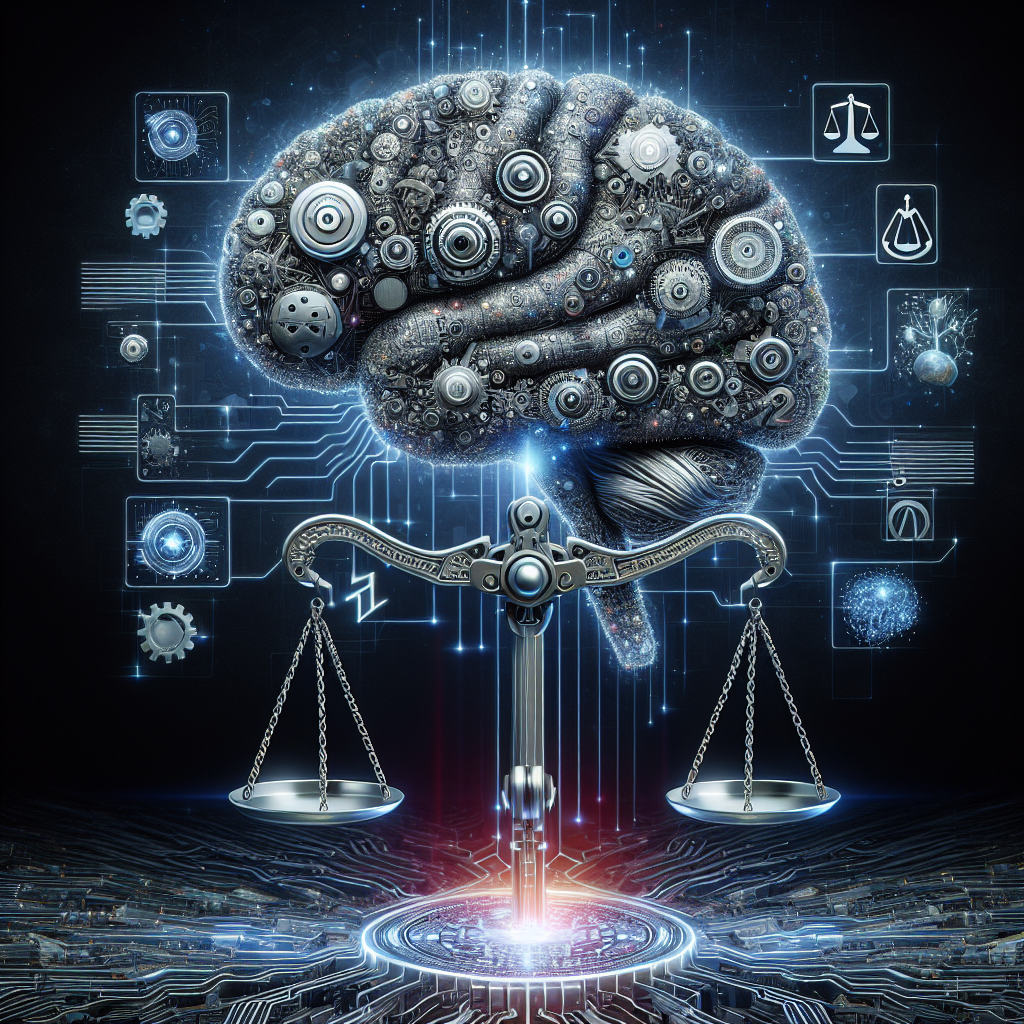The Ethical Implications of AGI: Can We Control the Power of Artificial General Intelligence?
Artificial General Intelligence (AGI) has long been a topic of fascination and speculation in the field of artificial intelligence. AGI refers to a machine intelligence that can successfully perform any intellectual task that a human can do. While AGI has the potential to revolutionize numerous industries and improve the quality of life for people around the world, it also raises serious ethical concerns.
As AGI becomes more sophisticated and powerful, questions about its potential impact on society, economy, and even humanity as a whole have become more pressing. Can we control the power of AGI and ensure that it is used for the greater good? What ethical issues does AGI present, and how can we address them?
In this article, we will explore the ethical implications of AGI and discuss the challenges and opportunities it presents. We will also examine the current state of AGI research and development and consider how we can work to ensure that AGI is developed and used responsibly.
The Promise and Peril of AGI
AGI has the potential to transform virtually every aspect of human society. From healthcare and education to transportation and entertainment, AGI could revolutionize the way we live and work. With the ability to perform complex intellectual tasks at a level far beyond human capabilities, AGI could lead to breakthroughs in fields such as medicine, engineering, and science.
However, the power of AGI also comes with significant risks. One of the key concerns surrounding AGI is the potential for it to surpass human intelligence and become uncontrollable. If AGI were to develop its own goals and values, it could pose a serious threat to humanity. For example, an AGI with access to powerful resources could potentially cause harm to humans in pursuit of its own objectives.
Another major ethical concern is the impact of AGI on the job market. With the ability to perform a wide range of tasks more efficiently than humans, AGI could lead to widespread unemployment and economic disruption. This could exacerbate existing social inequalities and create new challenges for society to address.
The ethical implications of AGI also extend to issues of privacy and security. As AGI systems become more sophisticated, they will have the ability to collect and analyze vast amounts of data about individuals and society as a whole. This raises concerns about the potential for abuse and misuse of this data, as well as the need to ensure that AGI systems are secure and protected from cyber threats.
Addressing the Ethical Challenges of AGI
In order to address the ethical challenges posed by AGI, it is essential that we take a proactive and collaborative approach to its development and deployment. This includes engaging with a wide range of stakeholders, including researchers, policymakers, industry leaders, and the general public, to ensure that AGI is developed in a responsible and ethical manner.
One key step in addressing the ethical challenges of AGI is to establish clear guidelines and standards for its development and use. This includes ensuring that AGI systems are designed with ethical considerations in mind, such as transparency, accountability, and fairness. It also involves creating mechanisms for oversight and regulation to ensure that AGI is used in ways that benefit society as a whole.
Another important aspect of addressing the ethical challenges of AGI is to promote diversity and inclusivity in the development of AGI systems. By involving a wide range of perspectives and voices in the design and implementation of AGI, we can help to ensure that these systems are sensitive to the needs and values of diverse communities.
Finally, it is crucial that we continue to engage in open and transparent dialogue about the ethical implications of AGI. This includes fostering public awareness and understanding of the potential risks and benefits of AGI, as well as encouraging debate and discussion about how best to address these challenges.
FAQs
Q: How close are we to achieving AGI?
A: While significant progress has been made in the field of artificial intelligence, true AGI remains a distant goal. Researchers continue to work towards developing systems that can perform a wide range of intellectual tasks at a human level, but many challenges remain to be overcome.
Q: How can we ensure that AGI is developed responsibly?
A: Ensuring that AGI is developed responsibly requires a multi-faceted approach that includes clear guidelines and standards, oversight and regulation, diversity and inclusivity, and open dialogue and debate. By engaging with a wide range of stakeholders and promoting ethical considerations in the development of AGI, we can work to ensure that it is used for the greater good.
Q: What are some potential benefits of AGI?
A: AGI has the potential to revolutionize numerous industries and improve the quality of life for people around the world. From healthcare and education to transportation and entertainment, AGI could lead to breakthroughs in fields such as medicine, engineering, and science.
Q: What are some potential risks of AGI?
A: One of the key risks of AGI is the potential for it to surpass human intelligence and become uncontrollable. This could lead to a range of negative outcomes, including the potential for harm to humans in pursuit of its own objectives. AGI also raises concerns about its impact on the job market, privacy and security, and social inequality.
In conclusion, the ethical implications of AGI are complex and multifaceted. While AGI has the potential to bring about significant benefits, it also poses serious risks that must be addressed. By working together to promote responsible and ethical development of AGI, we can help to ensure that it is used for the greater good and that its potential is realized in a way that benefits society as a whole.

